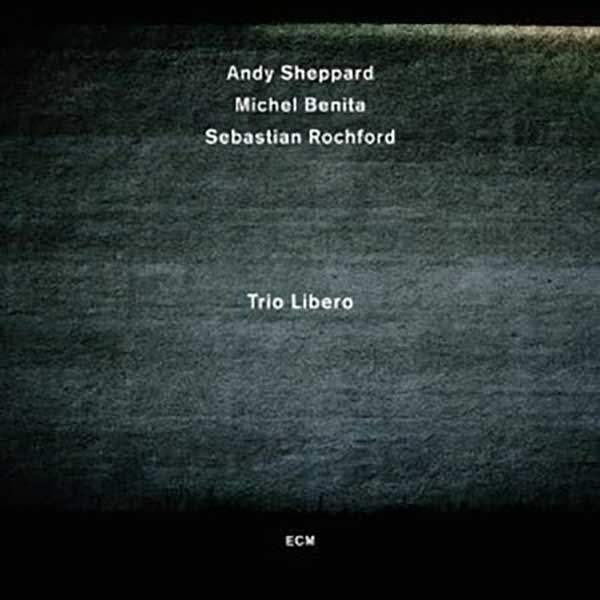
by Tim Owen
March 18, 2012
/ ALBUM
The key to its success is the egoless give-and-take between the three simpatico trio partners
This trio, which came together in 2008, is a great showcase for Andy Sheppard, and this album, their first, is comfortably my favourite work of his since 66 Shades of Lipstick, a now presumably hard-to-find album released in 1990 on the short-lived Virgin Venture label.
Trio Libero is not Sheppard’s first recording for ECM, but 2009′s Movements in Colour, although critically well-received, was to my mind a rather contrived affair. Trio Libero, by contrast, is an understated triumph. The key to its success is the egoless give-and-take between the three simpatico trio partners, their intersecting narratives converging fortuitously on the same page.
Having emerged as one of the young jazz stars of the mid 80s, as the genre enjoyed its last fleeting moment of broad popularity, Sheppard quickly identified himself with an established and close-knit community of musicians including Carla Bley and Steve Swallow. Despite winning multiple awards for his own recordings, he elected to build his reputation through work with older musicians such as bandleader George Russell and composer/arranger Gil Evans. To my knowledge, Trio Libero is the first improvised setting for Sheppard’s saxophone since 66 Shades of Lipstick, which was a suite of duo improvisations recorded with the great British pianist Keith Tippett.
Bassist Michel Benita was born in Algeria but relocated to Paris in the 80s. As his formative experience playing alongside drummer Peter Erskine might suggest, Benita has a solid grasp of time, but he also has a liking for the simple forms and harmonies of country music (witness his Ramblin album), and apparently sees jazz and country as folk forms. His rounded and melodious sound proves an ideal foil for the subtle and understated Sheppard.
Drummer Seb Rochford, a Scottish-born Londoner, may be the most well known of the trio among younger metropolitan listeners, thanks to his playing in F-ire Collective groups such as Acoustic Ladyland and Polar Bear. Notwithstanding the sometimes brash joie de vivre of those groups’ respective outputs, Rochford is a wonderfully sensitive and understated player, which makes him an ideal foil for his Trio Libero partners.
Rochford’s playing on two versions of the appropriately weightless “Spacewalk” make these tracks the album’s highlights. On “Spacewalk, Part 1” his tom strikes and cymbal play pierces the foggy drift of Sheppard’s haunting sax, inviting some deft melodic interplay from Benita, while on “Part 2” his busyness with pernickety detail contrasts beautifully with the more measured playing of his partners, and somehow serves only to charge the ethereal atmosphere with a heightened sense of anticipation. Sheppard ends “Part 1” with an anguished altissimo wail; its echo at the close of “Part 2” is less dramatic, more affecting.
Elsewhere, Rochford opens Sheppard’s “Land of Nod” with a drum solo that develops in waltz time, which is enough to make it the most extroverted track on the album, notwithstanding the concise post-bop figure the drummer works into “Slip Duty”. It’s stately precision is leavened by the sprightliness of the melody Sheppard’s sax carries.
The trio play throughout with true feeling for one another, with true grace and understatement, but also with a fluency and spontaneity that keeps the music fresh despite the lack of dramatic highs. It’s an album of exquisitely controlled modulation. Their take on the Chopin-inspired Broadway show tune “I’m Always Chasing Rainbows” has, unsurprisingly, very little in common with Alice Cooper’s version.
blog comments powered by Disqus